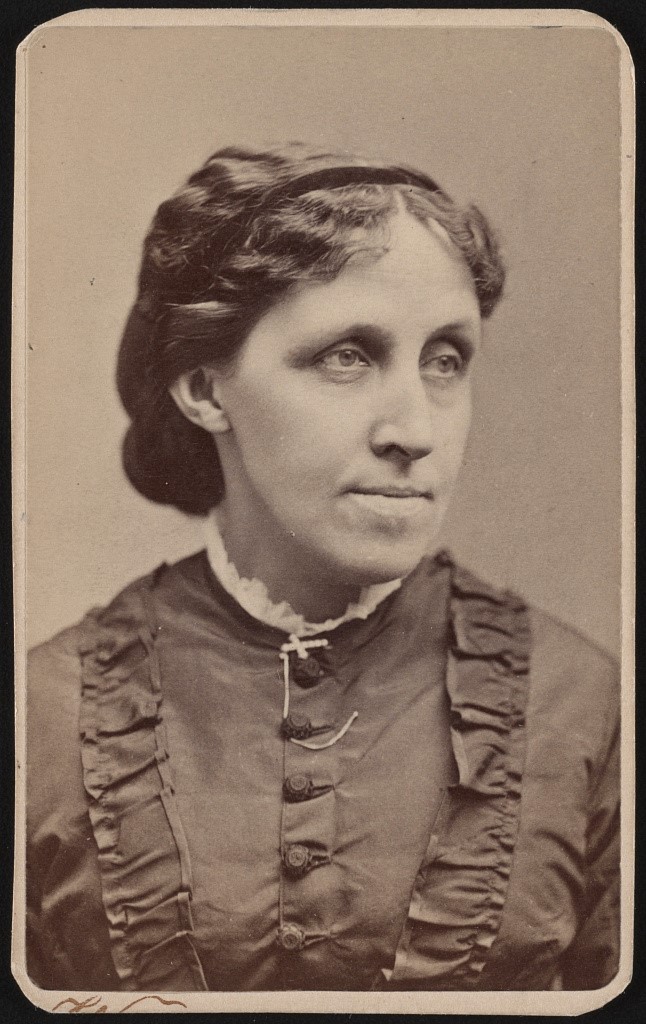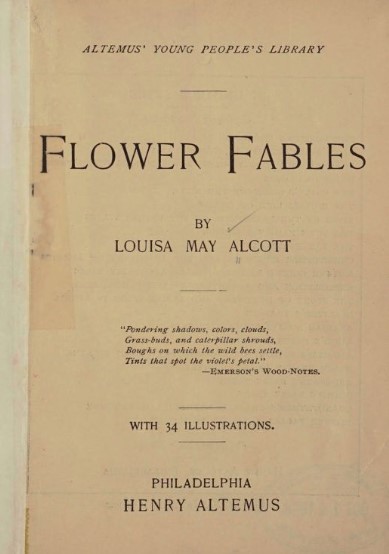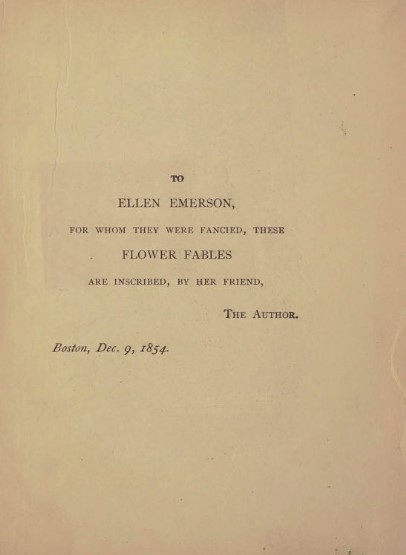Celebrate the 100th anniversary of the 19th Amendment with stories about the people and events that led to the passage of women’s suffrage in the United States.
Louisa May Alcott (1832-1888)
Author of the internationally renowned “Little Women,” Louisa May Alcott blazed a path for female authors and thinkers to follow. She was also a dedicated abolitionist, suffragist, and nurse.
“Louisa May Alcott, writer, abolitionist, and Civil War nurse,” ca. 1870. Image courtesy of the Library of Congress.
Early Life
Louisa May Alcott was born on November 29, 1832, in Germantown, Pennsylvania. Alcott and her three sisters – who would go on to inspire the central quartet of “Little Women” – spent their childhood in Concord, Massachusetts, where they were educated by their father, Bronson Alcott.
The Alcott’s had a somewhat unique childhood, growing up in part on a transcendentalist commune. The family held strong political convictions that influenced Louisa Alcott’s life in great measures, such as when she helped her parents hide escaped slaves traveling north on the Underground Railroad. The Concord community was also filled with radical thinkers who made up the Alcott’s social circles, including Margaret Fuller, Henry David Thoreau, Ralph Waldo Emerson, and Nathaniel Hawthorne.
Writing became an early passion for Alcott, who augmented her education with poetry writing, visits to Emerson’s library, nature excursions with Thoreau (about whom she also wrote the poem “Thoreau’s Flute”), and staged plays in the barn at Hillside House in Concord (now known as the Wayside).
Orchard House, the childhood home of Louisa May Alcott and her sisters in Concord, Massachusetts. Image courtesy of the Library of Congress.
When Louisa was a teenager, the Alcott family faced years of poverty that worked their way into the stories of “Little Women.” This period encouraged Alcott to take matters into her own hands in a world that offered little to no fiscal opportunity for women outside of marriage.
Before publishing her own works, Alcott worked as a teacher, seamstress, governess, and household servant to make ends meet. Alcott then vowed: “I will make a battering-ram of my head and make my way through this rough and tumble world.”
Flower Fables and Other Early Works
Alcott began her career with the publication of poetry and short stories. Some of these early works were signed “A.M. Barnard” and were categorized as “potboilers,” often lurid and violent tales – but they always featured female characters who were strong and independent. At age 22, Alcott achieved a major milestone with the publication of her first book, “Flower Fables.”
Cover and inscription of an 1898 edition of Louisa May Alcott’s first book, “Flower Fables.” The book was dedicated to Ellen Emerson, daughter of Alcott’s friend Ralph Waldo Emerson. Images courtesy of the Library of Congress, where a fully scanned version of the text is also available.
Throughout her life, Alcott was involved with causes such as women’s suffrage and abolition, influenced by the many intellectuals who shared her home community. Alcott and her mother canvassed door-to-door in their community to encourage women to vote, and in 1879 Louisa was registered as the first woman to vote in the Concord school committee election.
As an adult, she also socialized with Frederick Douglass and Julia Howe, leaders in their respective causes. In 1861, after the start of the Civil War, Alcott enlisted as a nurse in a Union Hospital in Georgetown in Washington, D.C. Though she had to leave her assignment early due to typhoid fever, the time proved to be immensely influential. In 1863, she published “Hospital Sketches,” a memoir detailing her time as a nurse, inspired by the letters she wrote to her family during this time.
Little Women
Well into her career, at age 35, Alcott’s publisher asked her to pivot and write a “girls’ story.” This directive led Alcott to write her magnum opus, “Little Women,” which stands the test of time as a seminal American text. The 492 pages of “Little Women, Part I” were written in three months at the desk her father built for her at her childhood home of Orchard House.
The book became an instant hit, resonating with stories of domestic life and realistic depictions of women not typically seen in contemporary fiction.
Listen to Arlington Public Library’s Big Book Club Podcast podcast episode on "Little Women," in which librarians Deborah and Megan talk with Pete about their personal experience of reading the book, the history of its publication, and why it is still worth talking about today.
Alcott published 30 books over the course of her life, cementing her in the pantheon of great American writers. She died on March 6, 1888, and is buried in Sleepy Hollow Cemetery in Concord.
“The Late Louisa May Alcott,” wood engraving after photo, 1888. Image courtesy of the Library of Congress.
Additional Resources
- Read “Little Women,” available online at the Library.
- Explore Louisa May Alcott’s Orchard House virtually.
- Watch the 1994 or 2019 film adaptations of “Little Women,” available on streaming sites.
2020 marks the centennial of women’s suffrage in the United States.





I loved reading this! Now L.M. Alcott has sprung to the front of my ongoing list of people (live or dead) that I would like to meet. As if they were alive, of course….
Ellen, thank you for letting us know!